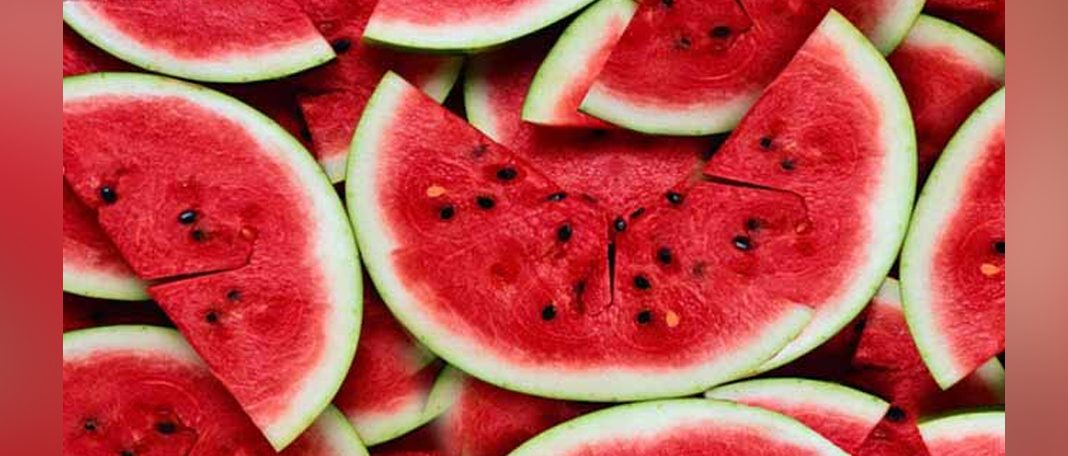Watermelon is one of the most loved and most consumed fruits in the world. Watermelon is not just a delicious and refreshing fruit but also provides many nutritional benefits. Watermelons are sweet and refreshing low-calorie fruits that have high water content. This fruit also contains several nutrients that benefit overall health.
Watermelon contains 92% water and is considered a water-rich and nutrition-rich fruit. Each bite gives you a significant amount of vitamin A, B6, C, antioxidants, amino acids, and lots of lycopene. It provides no protein/fat and is also very low in calories. According to the United States Department of Agriculture (USDA), one cup of diced watermelon contains
- Calories: 46
- Total fat: 0.23 grams (g)
- Carbohydrates: 11.48 g
- Dietary fiber: 0.6 g, or 2.4 percent
- Protein: 0.93 g
- Sugars: 9.42 g
- Water content: 139 g
- Calcium: 11 milligrams (mg)
- Lycopene: 6890mcg
- Iron: 0.36 mg
- Magnesium: 15 mg
- Potassium: 170 mg
- Vitamin C: 12.3 mg
- Vitamin A: 865 international units (IU)
Carbs
Carbs in watermelon are mostly sugar with a little fiber. The carbs include glucose, sucrose, and fructose. A Glycemic index (GI) of 76 is found in the watermelon and it provides a faster rise in blood sugar than foods with a lower GI.
Fat
Watermelons are non-fat fruits. Even in cantaloupe and honeydew, there is no fat. Watermelon helps you lose or maintain your weight by burning your fat quickly.
Protein
Watermelon provides little protein i.e one gram per cup. Watermelon is one of the best fruits to eat if you’re planning to lose weight.
Vitamins and minerals
A full ripe watermelon contains high amounts of nutrients compared to a partially ripe watermelon. Watermelon is a good source of vitamin A and Vitamin C. One cup of watermelon can satisfy your daily requirement of copper, pantothenic acid, 4% of vitamin B1 and B6, and 5% of biotin.
Calories
One cup of diced watermelon contains about 46 calories. A wedge-shaped watermelon, i.e one-sixteenth of the watermelon contains 86 calories. You need 13 minutes of walking to burn 46 calories!
Citrulline
Watermelon is the richest known dietary source of Citrulline, an amino acid that boosts levels of nitric oxide. Nitric oxide helps your body dilate and constrict your blood vessels. This improves your blood pressure and healthy heart.
Health Benefits of Watermelon
Watermelon contains various antioxidants and nutrients so it provides various health benefits as follows
Watermelon will keep you hydrated.
- Dietary antioxidants such as Vitamin C prevent cell damage and cancer by combatting free radicals.
- It improves your heart health.
- It helps to lower inflammation and oxidative stress.
- It helps to relieve muscle soreness.
- Vitamin A and C in watermelon are good for skin and hair.
- It improves digestion.
- It reduces the risk of chronic diseases.
Even the seeds of watermelon are a good source of Omega 3-fatty acid. Yes, watermelon seeds are edible. Next time while eating watermelon try to intake its seeds as well. Don’t worry, the seeds won’t grow in your stomach.


















